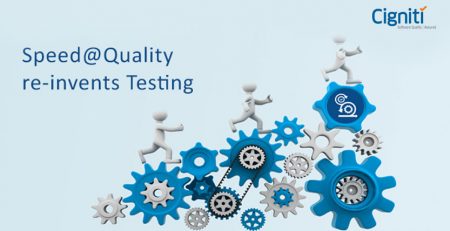What is the Agile perspective for business transformation
Without the IT infrastructural availability, digital businesses would cease to exist. The latest ITIC 2019 Global Server Hardware and Server OS Reliability Survey reported that a single hour of downtime costs 98% of the firms at least $100,000. Imagine how much losses Twitter would have incurred after its recent global outage of several hours.
Agile transforms the way enterprises function and need to deliver. It induces the need for Business Transformation, which is a major change management strategy designed to align a 3-way course that involves People, Process, and Technology. The transformation strategy should be closely aligned with the organization’s vision and must further support it. Agile transtioning helps organizations to build scalability and enables them to see the bigger picture.
As Gartner states, “Digital business is not going to be delivered using the waterfall methodology for software development. All IT organizations will need to have a clear understanding of agile development methodologies. Adopting agile development is not just about changing the way that programmers work – it demands major changes to the IT organization that must be firmly led by the CIO and the IT management team.”
Evidently, Agile enables enterprises to get scalable and receptive to deal with market dynamics. For instance, an online gaming application needs a constant upgrade of features and gimmicks for the users. This is feasible in an agile set-up where the team is able to add features without disrupting the ongoing operations of the application or taking it off from the LIVE environment. Changes can happen on the go and enable enterprises to reach faster to the market by ensuring quality. However, to enable faster turnaround and bring this kind of flexibility, enterprises need to ensure that the organization is ready for such radical changes.
Agile is now even expanding outside the arena of software. Enterprises are progressively adopting Agile practices across the system to effectively operate in the volatile market scenario. Adopting an agile approach in the testing scenario enables to create an impact with its speed and processes.
Scalability, accessibility, responsiveness, and repeatability of testing is driving enterprises in the business transformation mode. Business Agility is critical for enterprises to ensure sustainability and profitability.
How Agile Testing can bring about business transformation for enterprises?
Let us now look at some key factors that explain how Agile Testing can bring about business transformation for enterprises.
- Enables enterprises to stay ahead of the curve
Product development is getting trickier by the day, as applications are getting more complex and there is a growing demand for integration with third-party interfaces. In order to accommodate any such demands, enterprises need to bring scalability and much more flexibility in their approach. Agile transformation and methodologies enable enterprises to bring scalability and responsiveness within the system. This helps them to react faster to the changes and technology upgrades and incorporate them within the application’s DNA.
This is impossible with the traditional approach of development and testing, where the process takes longer. Flexibility in approach and higher levels of receptiveness using Agile methodologies helps bring business transformation. It will eventually empower enterprises to effectively develop and test applications for the digital era.
- Agile approach helps business to move away from traditional model
The origin of Agile dates back to the publication of the Agile Manifesto in 2001, which marked a distinct movement. Agile Transformation and Digital Transformation are today driving disruption across various enterprises and organizations are understanding what business agility can achieve for them. They are, thus, accepting the best in Agile and transforming the way people, processes, and technology operate.
Agile teams cannot function in the traditional hierarchical model, as the teams get smaller, releases are much more frequent, and decision making is much faster. This has made enterprises move away from the traditional testing practices and align themselves with the new one, which boost speed and bring flexibility. Agile methodologies are adopted across every function of development – Code Development, Code Analysis, or Code Review.
- Agile approach boosts Quality Transformation
QA Transformation defines a progressive approach to measure, manage, and integrate processes to ensure financially effective and timely benefits on a regular basis. Organizations are building Testing Center of Excellence (TCoE) and leveraging testing accelerators/frameworks to effectively strategize and build market-ready products.
An agile approach integrates testing within the development process and helps adopt robust processes for Quality Transformation. While devising a practical approach towards Quality (QA) Transformation, there is a critical need to bring about Business Transformation. Quality Transformation necessarily means that quality metrics are defined and tracked. Moreover, the idea of Continuous Testing and Delivery is instilled within the organization’s DNA. QA Transformation transforms the core of the business and makes it more responsive to the market demands.
- Agile approach enhances Transparency
Agile approach emphasizes on continuous development and delivery, which makes businesses review their software quality metrics on a repeated basis. This facilitates constant inspection and faster rectification of issues. Moreover, it encourages transparency that enables businesses to align further with IT departments. Transparency in the processes brings accountability and authenticity that builds a strong foundation for agile business transformation.
In Conclusion
Consequently, the question arises, is reorganization essential for adopting Agile? The answer is yes, as Agile helps enterprises to move away from the legacy and adopt processes that bring speed and flexibility. Speed and Quality are at the core of every organization’s profitability metrics. This makes Business Transformation essential to achieve QA transformation, which can be attained effectively with an Agile approach.
Cigniti has been a trusted testing partner for many organizations in various stages of adopting Agile. We have helped organizations new to Agile in building QA planning, estimation, metrics into their sprints. In case of more mature organizations, we have seamlessly integrated with their sprint teams to improve test coverage, velocity, and quality.
Connect with us to build a comprehensive business transformation strategy that keeps QA Transformation at the core.





Leave a Reply